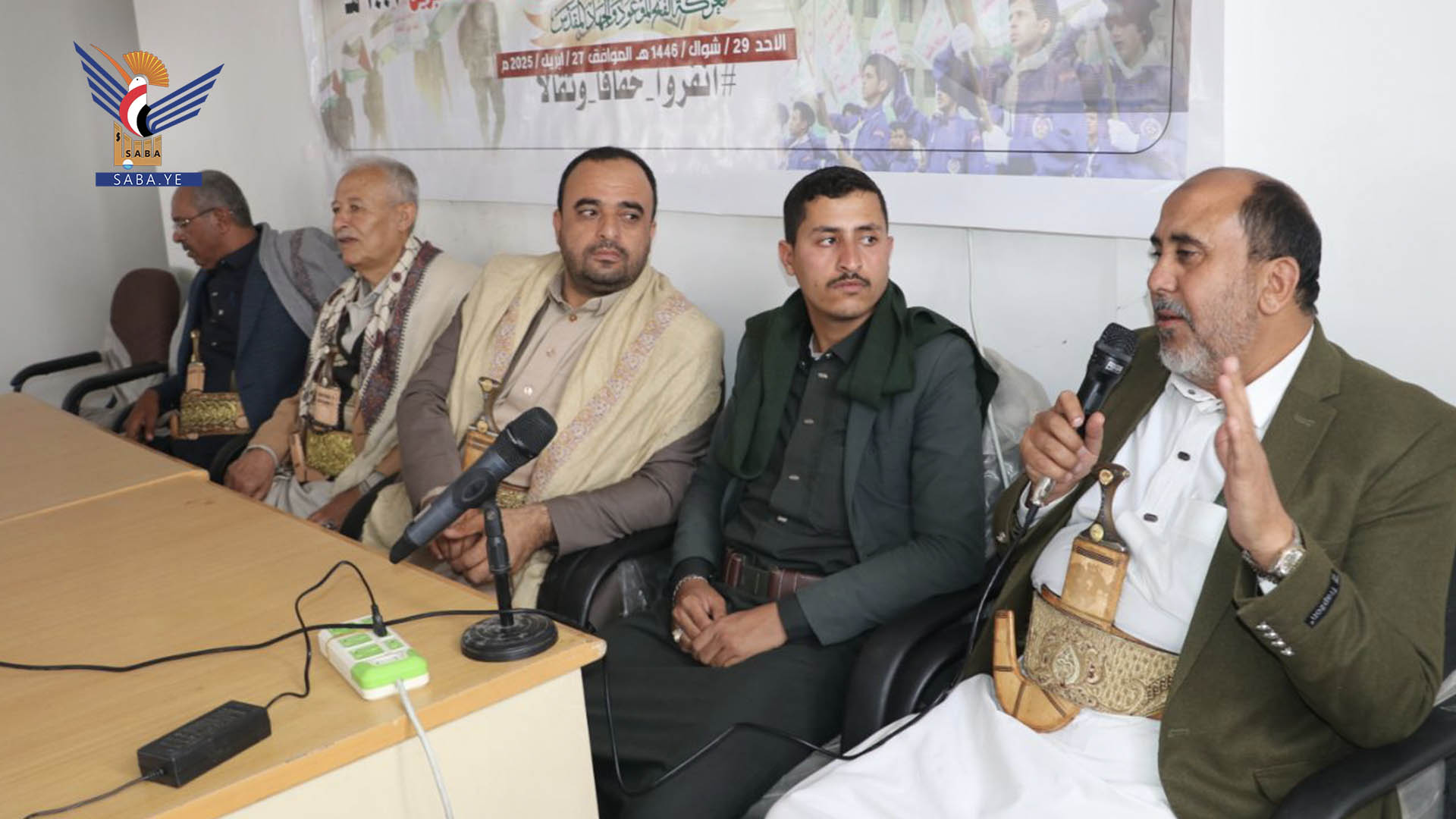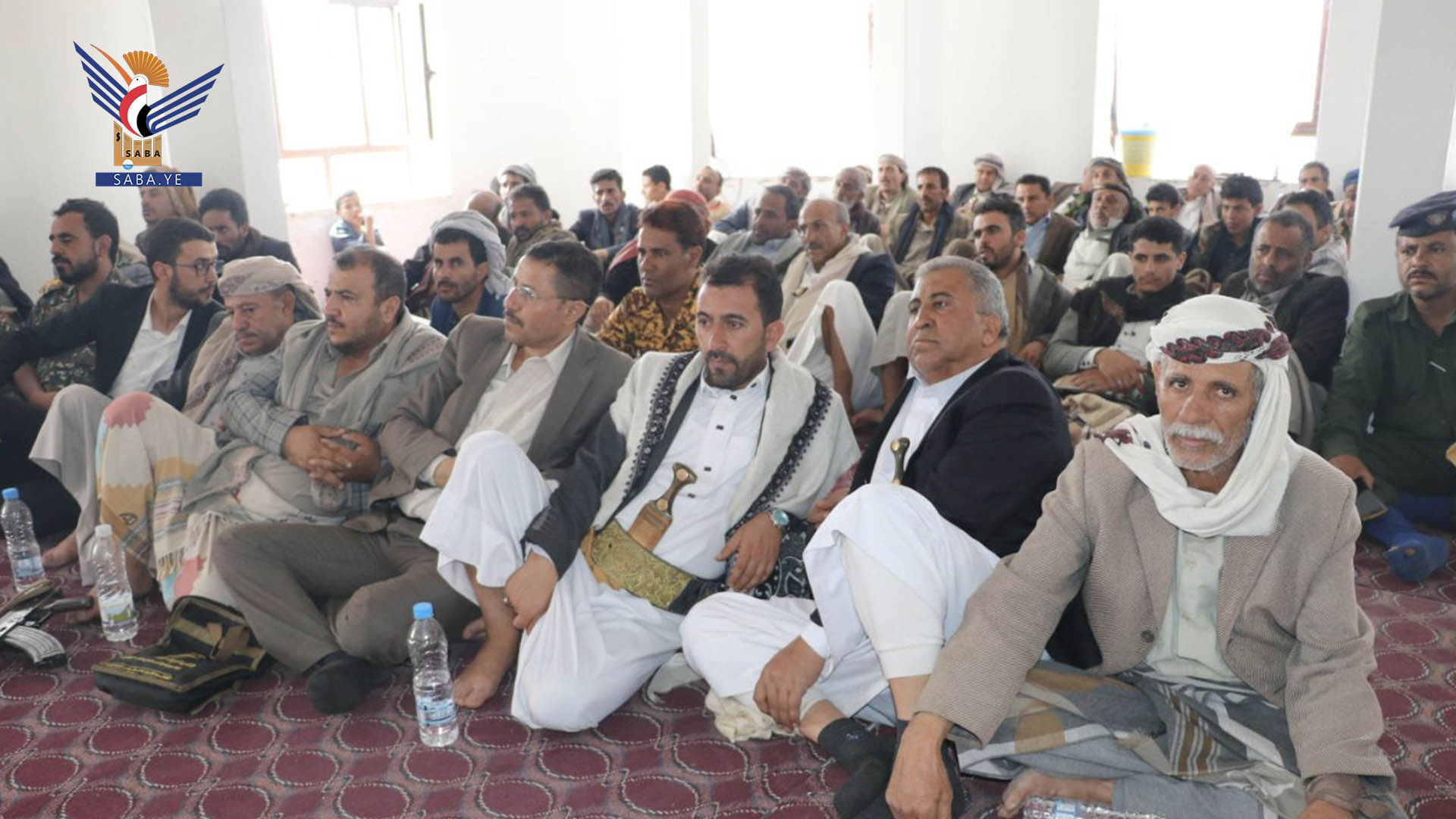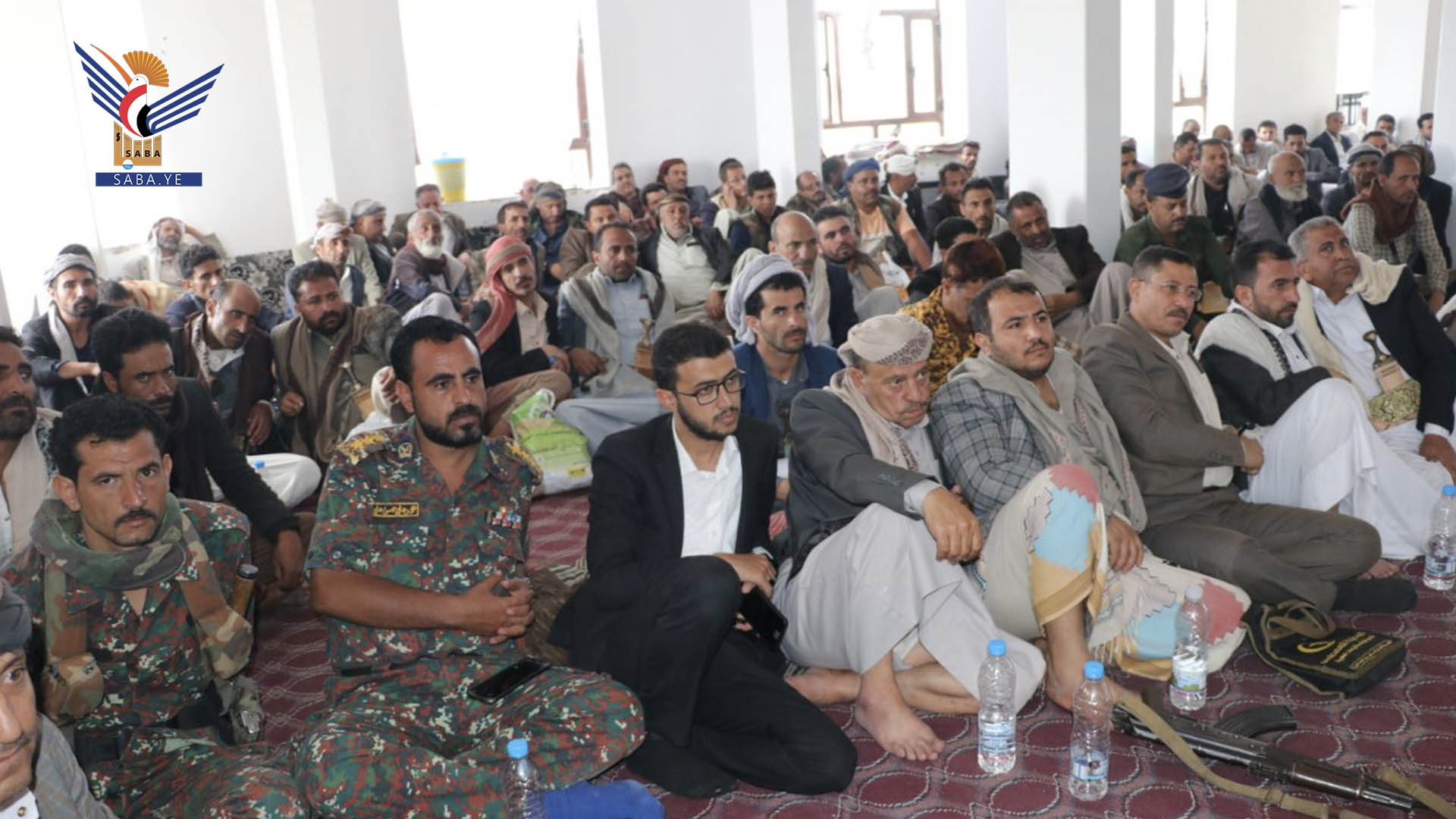
Dhamar - Saba:
The General Authority for Zakat office and the Executive Unit for Road Construction and Public Maintenance in Dhamar province organized a speech event on Sunday to mark the annual anniversary of "Sarkha" (The Cry), under the title: "A Weapon and a Stance."
During the event, the province's deputy governor, Mohammed Abdulrazzaq, emphasized the importance of commemorating this occasion and the role of the slogan in thwarting projects targeting the nation, as well as exposing the falsehood of deceptive Western slogans.
He pointed to the challenges the nation faced before the launch of the "Sarkha," including a state of silence and subservience to the U.S., which prompted the martyred leader, Sayyed Hussein Badr al-Din al-Houthi, to declare his Qur'anic project, rejecting the state of domestication and surrender that had gripped the nation.
For his part, Ibrahim Al-Mutawakkil, Director of the Zakat Office in the province, stated that the "Sarkha" slogan, launched by the martyred leader, lifted the nation from its dire reality to a practical stance against modern colonialism, led by the arrogant power, the U.S., which seeks to plunder the resources of nations.
He reviewed the victories, dignity, and empowerment achieved by the Yemeni people thanks to the Qur'anic project, stressing that the "Sarkha" slogan has now become a chant on the tongues of free people worldwide—a slogan of freedom and an expression of true enmity toward the U.S. and Israel.
Meanwhile, cultural activist Khaled Al-Dhalimi discussed the objectives of the "Sarkha" slogan and its meanings in motivating believers to confront enemies who sought to turn the nation of the Qur'an into a subservient entity serving their colonial project aimed at controlling the nation’s resources.
He stressed the importance of adhering to the Qur'anic culture of the project established by the martyred leader Sayyed Hussein Badr al-Din al-Houthi and rejecting conspiratorial schemes seeking to destroy the Islamic nation.
In turn, cultural activist Mohammed Al-Khawjah noted that the slogan embodies the Qur'anic project of the martyred leader in declaring disavowal of the Jews and the enemies of the nation.
He called for applying the slogan in both speech and action on the ground, especially amid the real confrontation with the global arrogant power (the U.S.) and the forces of oppression, disbelief, and hypocrisy.
The General Authority for Zakat office and the Executive Unit for Road Construction and Public Maintenance in Dhamar province organized a speech event on Sunday to mark the annual anniversary of "Sarkha" (The Cry), under the title: "A Weapon and a Stance."
During the event, the province's deputy governor, Mohammed Abdulrazzaq, emphasized the importance of commemorating this occasion and the role of the slogan in thwarting projects targeting the nation, as well as exposing the falsehood of deceptive Western slogans.
He pointed to the challenges the nation faced before the launch of the "Sarkha," including a state of silence and subservience to the U.S., which prompted the martyred leader, Sayyed Hussein Badr al-Din al-Houthi, to declare his Qur'anic project, rejecting the state of domestication and surrender that had gripped the nation.
For his part, Ibrahim Al-Mutawakkil, Director of the Zakat Office in the province, stated that the "Sarkha" slogan, launched by the martyred leader, lifted the nation from its dire reality to a practical stance against modern colonialism, led by the arrogant power, the U.S., which seeks to plunder the resources of nations.
He reviewed the victories, dignity, and empowerment achieved by the Yemeni people thanks to the Qur'anic project, stressing that the "Sarkha" slogan has now become a chant on the tongues of free people worldwide—a slogan of freedom and an expression of true enmity toward the U.S. and Israel.
Meanwhile, cultural activist Khaled Al-Dhalimi discussed the objectives of the "Sarkha" slogan and its meanings in motivating believers to confront enemies who sought to turn the nation of the Qur'an into a subservient entity serving their colonial project aimed at controlling the nation’s resources.
He stressed the importance of adhering to the Qur'anic culture of the project established by the martyred leader Sayyed Hussein Badr al-Din al-Houthi and rejecting conspiratorial schemes seeking to destroy the Islamic nation.
In turn, cultural activist Mohammed Al-Khawjah noted that the slogan embodies the Qur'anic project of the martyred leader in declaring disavowal of the Jews and the enemies of the nation.
He called for applying the slogan in both speech and action on the ground, especially amid the real confrontation with the global arrogant power (the U.S.) and the forces of oppression, disbelief, and hypocrisy.

